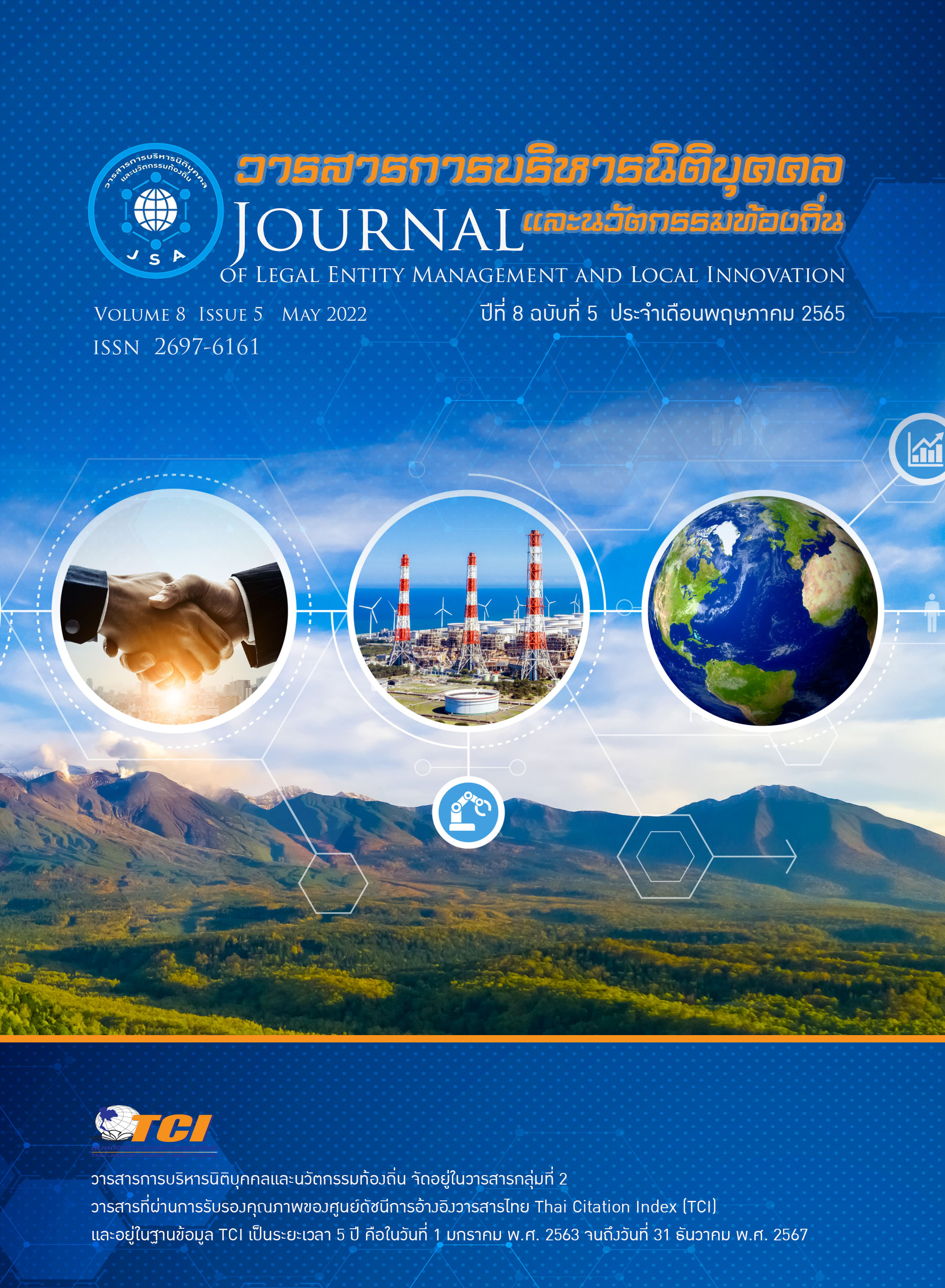The Economic Potency Base on Rice Merit Ceremony of Farmer in Thung Kular Rong Hai
Keywords:
Economic power, Rice Merit Ceremony, Thung Kula Rong HaiAbstract
The objectives of this research were: 1) to study the living conditions, way of life and cultural wisdom of the rice merit ceremony of farmers in the Thung Kula Rong Hai, economic potency based on rice merit ceremony; 2) to analyze the key elements affecting the economy based on rice merit ceremony in order to propose them as economic policies for farmers in Thailand. This research is mixed between a qualitative and quantitative research. In-depth interview techniques, group discussion and composition analysis were used. The populations were conducted from farmers in Thung Kula Rong Hai district, 5 provinces, namely Surin, Roi Et, Maha Sarakham, Yasothon and Si Sa Ket, by selecting 2 communities in each province, a total of 10 communities. There were 30 key informants in an in-depth interview. 500 quantitative data were collected and key informants were in 2 group discussions of 15 participants each. Data were analyzed by content analysis and variable extraction by quantitative research technique. Exploratory Factor Analysis method would result in the sequence of elements that are important to the economy based on rice merit ceremony. An analytical descriptive would be presented. The findings were revealed as follows: 1. The way of life of the people in Thung Kula Rong Hai is simple, depends on each other and respects the traditions and culture in their community. There are many ethnic groups such as Lao, Khmer, Kula, Kui and Yer. Most of them are engaged in agriculture, farming and animal husbandry. The important cultural wisdom of rice of Thung Kula Rong Hai people are: 1) Selection and use of production factors; 2) Rice care and treatment; 3) Food and consumption aspects; and 4) System building in beliefs, traditions and rituals of rice culture. 2. The economic power is linked to the rice merit ceremony. The rice merit ceremony of the Thung Kula Rong Hai has been practiced for a long time. These rice merit ceremonies are called Boon Khun Lan, Boon Khao Jee, Boon Pha Whet, Boon Bang Fai, Boon Khao Pradub Din and Boon Sart Thai, Boon Khao Sak. These cause production consumption and distribution which is to create an economy and makes people in the community having a career and income to their communities. In addition, a group of agricultural and food occupations was born; there are handicraft groups such as silk weaving and cotton weaving; cultural groups and production savings groups. 3. There are 5 components related to the economy based on rice merit ceremony that has power to the community of Thung Kula Rong Hai people as follows: 1) Policy for promoting and supporting the creation of a mechanism to build economic relations between people- rice-water and Buddhism through merit traditions through 12 months; 2) Policy for promoting and conserving the culture of worshiping Fa-Kwan-Muang to create a grateful system, sharing, helping, supporting and exchanging labor by having the temple as the center; 3) Public mind promotion policy connects the use of labor in the community through friendship according to the community's cultural traditions; 4) Policy for promoting rice breeding, rice production and rice processing to create ecosystems and geographical indications of Thung Kula Rong Hai in the production of quality rice which will affect broad economic prosperity; and 5) Policy for promoting local wisdom and community resources to be the power of community economy to create.


